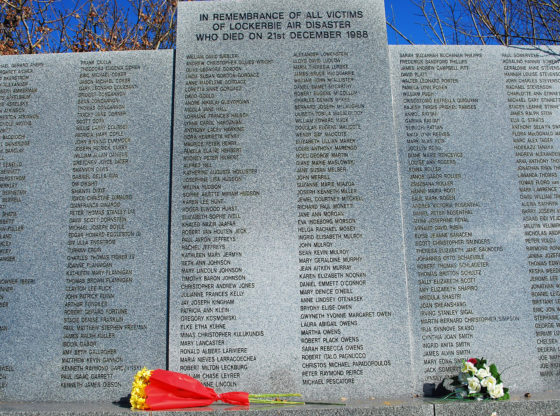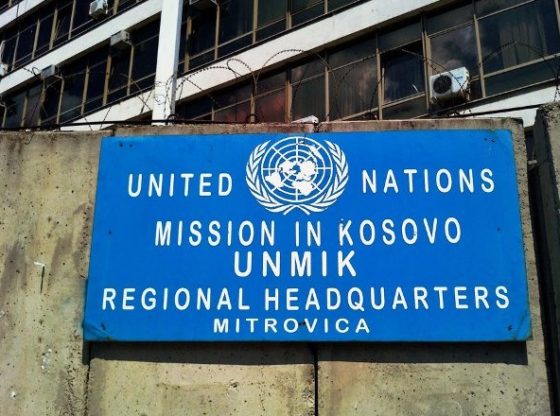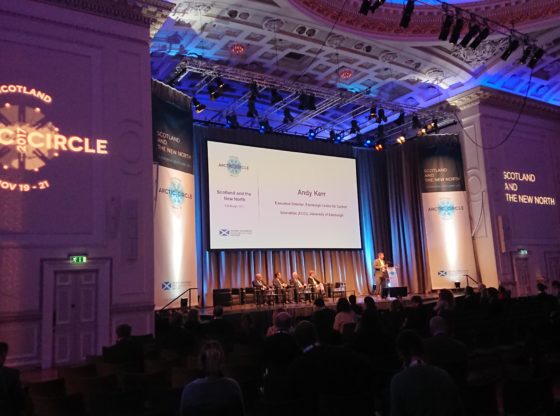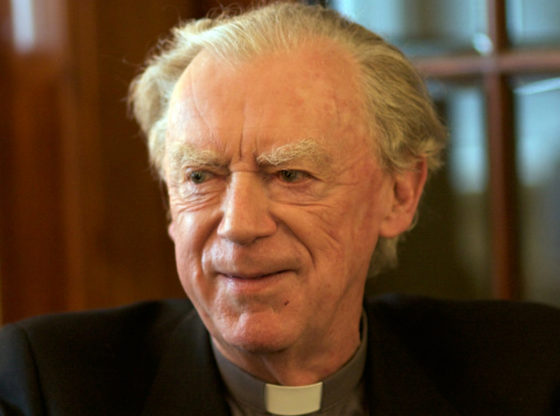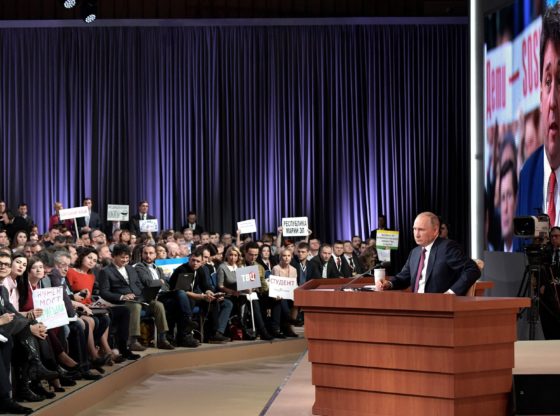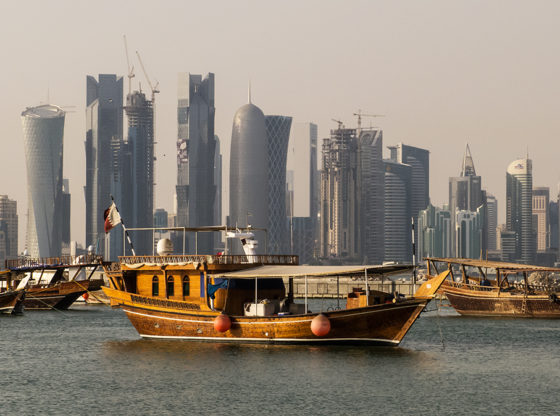President Trump’s announcement that the United States will recognise Jerusalem as the Israeli capital created an international backlash, and may shift the Israel-Palestine dynamic in profound ways. Joe Ryan-Hume visited Israel around the time of the announcement. Here, he reflects upon the opinions he encountered when he was there, and the wider international ramifications.
Just days before President Donald Trump announced to the world that the United States would recognise Jerusalem as Israel’s capital and move the US embassy accordingly, I journeyed from Haifa to Jerusalem to visit the city for the first time. Between scheduled meetings and unscheduled sightseeing, I experienced a city rich in history, culture, and hospitality. But as I entered the famous Damascus Gate to the old city and walked around East Jerusalem, I could sense the tension and pressure that has characterised and plagued the city for decades.
The Trump announcement risks further destabilising an already volatile region. And with international indictment and protests in the streets, from Berlin to Beirut, following the announcement, we might ask: what is next for Jerusalem? How will the international community respond? And how do those who actually live in the region view the recent announcement and its implications?
AN EVER-PRESENT PAST
The status of Jerusalem is one of the most sensitive issues in the enduring conflict between Israel and Palestine. It also represents (or has represented) a red line in international peace negotiations. Containing sites sacred to the three major monotheistic faiths – Judaism, Islam, and Christianity – the holy city has been at the centre of the peace-making process for decades. Its status in the international arena has been unclear since the state of Israel was established in 1948.
Israel occupied the eastern sector of the city – previously occupied by Jordan – in 1967, and annexed it in 1980, but the move has never been recognised internationally. Indeed, the international community has always followed the model outlined in the 1993 Israel-Palestinian peace accords: that the final status of Jerusalem is an issue to be discussed in the latter stages of peace talks between the two sides.
Alongside the Israeli claim to the city, the Palestinians also see Jerusalem (specifically, East Jerusalem) as their capital, if they are able to establish a state. Whether Trump’s decision will ultimately damage this objective is lost in the imponderables about the ultimate likelihood of formal Palestinian statehood. What is clear is that it adds greatly to the sense of Palestinian isolation.
Developments since the announcement have taken a worrying turn - the death toll in Gaza is rising, protests in the West Bank are turning violent, and an Israeli citizen was stabbed in the heart at Jerusalem’s central train station on 10 December. The probability that tensions will escalate further is almost guaranteed.
TRUMP’S ANNOUNCEMENT - AND THE INTERNATIONAL RESPONSE
On 6 December, President Trump announced that the US would recognise Jerusalem as the Israeli capital, thus breaking the international consensus on one of the most sensitive issues in the on-going conflict between Israel and the Palestinians. The international response has been swift - and overwhelmingly critical. At an emergency meeting of the UN Security Council two days later, the US found itself isolated, with the other 14 members all condemning Trump’s declaration. The Arab League followed suit, with a resolution backed by a number of US allies, including Saudi Arabia and Jordan, who had already voiced their concern. The resolution included language stating that Trump’s move ‘deepens tension, ignites anger, and threatens to plunge the region into more violence and chaos.’
European opposition was also pronounced. The mood was made clear when Benjamin Netanyahu made the first official trip to the European Union by a sitting Israeli premier in 22 years. The European Union’s foreign policy chief, Federica Mogherini, reiterated the bloc’s commitment to a two-state solution, telling Netanyahu it would continue to recognise the international consensus on Jerusalem’s status.
Here in the Middle East, the response has been varied. Alongside Israeli politicians and government officials, several newspapers and national correspondents have celebrated Trump’s move. Praising Trump for ‘finally recognising’ the importance of Jerusalem, Israel Today suggested that other nations were fearful to follow suit: ‘That most nations refuse to recognize Jerusalem as Israel’s capital is a testimony to the fact that Jewish sovereignty in the Holy Land is still a bitter pill for most to swallow.’
On the other hand, a headline in the Palestinian Authority-owned newspaper Al-Hayat al-Jadidah (The New Life) labelled the US move the ‘slap of the century’ the following day. An editorial in the paper warned: ‘the gates of hell will be opened in the region’, echoing a statement made by the Islamist resistance group Hamas.
And as noted earlier, protest and violence has engulfed areas of this region since the announcement. For example, as the BBC reports, more than 100 people were hurt in Gaza and the West Bank during protests on 15 December. Three Palestinians were killed and one Israeli solider was stabbed. Strikes took place across these areas as shops and businesses shuttered up, while several schools and universities closed as well.
According to a number of actors in the conflict, including many Palestinian and Jordanian officials, Trump’s announcement has effectively disqualified the US from brokering future negotiations on the Israeli-Palestinian issue.
But what about the long-term implications of the move? According to a number of actors in the conflict, including many Palestinian and Jordanian officials, Trump’s announcement has effectively disqualified the US from brokering future negotiations on the Israeli-Palestinian issue. Indeed, on 13 December, the Palestinian President, Mahmoud Abbas, formally declared that the US was unfit to play the role of mediator.
Whilst some might contest the suggestion that the US was ever an ‘honest broker’ in these negotiations, Abbas’ statement is stark and ominous. And it raises an important question: is there another influential actor who can take over from the US and step into the vacuum? The Arab League? The European Union? Russia? Time will tell but it is clear that Trump’s actions have changed the calculus, and perhaps stymied any hope of a peaceful resolution to the Israel-Palestine crisis, at least in the short to medium term.
THE VIEW ON THE GROUND
Eager to speak with people when I was in Haifa, I found that many viewed Trump’s move as an unnecessary intervention. According to Lian Najami for example, “any foreign negotiator who wishes to bring peace to the Middle East should first ensure that their actions will not inflict more harm than good.” Lian, a 23 year-old Rhodes Scholar who describes herself as an ‘Arab-Israeli’, recognises the sensitivity of the issue and wishes that Trump had fully thought through the ramifications of his move, and the clear potential it had to destabilise the region. “Having grown up in Israel and having witnessed this conflict first-hand”, she says, “it hurts me to see my region descend into violence again. It’s clear that the relative period of peace we’ve had lately has been upended by a few words spoken from Washington DC.”
But others welcomed Trump’s statement, regarding it as a simple recognition of reality. For example, Moshe Mitchell, a 30 year-old student of political science at Haifa University who describes himself as “a religious Jew” and prays “for the restoration of Jerusalem three times a day”, declared himself “happy that Trump… recognised a historic reality” in announcing Jerusalem as Israel’s capital. According to Moshe, Jerusalem is Israel’s capital: “it holds the seat of Parliament, government, and Israel’s Supreme Court, and it has long confused me why Israel is the only country that does not have the right to decide where her capital is.”
Yet Moshe’s words would not be agreed upon by all Israelis. I spoke to several who told me that Tel Aviv should be considered the capital city, given both the city’s stature and the context of the conflict.
The divergence of opinion between Lian and Moshe, and several others I spoke with here in Haifa, reflects the gulf between those Israelis who place great emphasis on Jerusalem’s status, and those who either view it as an issue to be settled at a later date, or who simply want it off the table as an option. The fact that Israelis can differ on the subject of their capital city reflects fundamental differences in the country about Israel’s place and status (on issues such as settlements and expansion) and how, by extension, the Israeli-Palestinian issue should be handled.
However, everyone I spoke to did have one thing in common: apprehension about what comes next. Whether or not people agreed with Trump’s announcement, their attention was centred on the cost associated with it. This is a volatile place to live in. The people here on the ground know better than anyone the destabilising effect that Trump’s decision could have.
This is a volatile place to live in. The people here on the ground know better than anyone the destabilising effect that Trump’s decision could have.
In the days leading up to Trump’s announcement, with speculation mounting, I heard many people hope and pray that he would change his mind. And in the immediate aftermath of the official announcement, I could sense the angst among those - particularly in the older generation - who have been through various iterations of this conflict over the decades.
Indeed the following day, as I attended a gathering and we watched the television flash images of violent protests and reported casualties across the country, there was a collective sigh in the room, especially among the elders, as if they knew worse was yet to come. Several of my friends cancelled trips to Jerusalem in the succeeding days; I was barraged by messages from home regarding my safety.
I remember the feeling I had when I first arrived in Israel a number of months ago - I was surprised at how peaceful and welcoming the country was. I had been warned that I was visiting a ‘war-zone’ but I had absolutely no sense of this at all as I entered. Nor did I have in the ensuing weeks. However, for a number of days following Trump’s announcement, I got a small insight into what, for many here, is the norm: periods of peace followed by periods of instability and uncertainty. I admire the people who have grown-up in such conditions.
WHERE NOW?
According to the US Ambassador to the UN, Nikki Haley, President Trump’s announcement on Jerusalem “will go down in history” as “the move that finally got the two parties to come to the table.” At this point, that seems like a far-fetched statement, particularly as violence has engulfed and destabilised this region since.
What is clear is that opinions have been wide-ranging in the immediate aftermath. Both here in Israel, and across the world, many doubt Trump’s sincerity that recognising Jerusalem as the capital will further the peace process. To them, it is almost like arguing that pouring petrol on a smouldering fire will put it out. On the other hand, many have pointed to the fact that every country has a right to determine its own capital city, and that Trump is only expressing this reality.
Whatever your view, Trump’s actions have altered the dynamic of the negotiations. The two-state solution increasingly seems untenable. Perhaps it’s time for a new approach but it’s hard to say exactly what that might be. The vacuum that the US risks leaving behind it with this announcement needs to be filled - and filled quickly - by a competent mediator who can offer calm. Are there international actors who will vie for this role? Might joint efforts by the Arab League and the EU be a possibility?
Many here believe - and hope - that peace will be reached one day. Blame is easy to place, but the truth is that the Israel-Palestine puzzle was never going to be solved by a President who is held in such low regard across the world. And, lest we forget, he may not be in office for very long. At this stage, all his announcement has done is to complicate an already complicated problem.
Joe-Ryan Hume is a postdoctoral fellow at the University of Glasgow, where he received his PhD in April 2017.
Feature image: An aerial view of Temple Mount, Jerusalem. Image: https://en.wikipedia.org/wiki/JerusalemAndrew Shiva [CC BY-SA 4.0]

